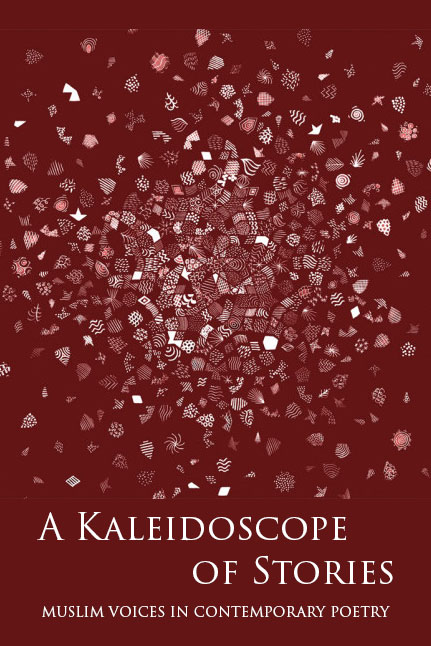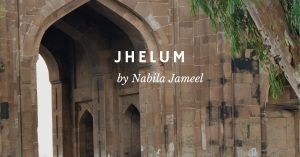I stand facing Mecca
the house all around me
parallel with everything
hands up to my ears
the Prayer begins
Hands across chest
time-space capsule surrounds me
no god but Allah
all Other forgotten
Here’s eternity’s signature
signed through space
with severe strokes
Parallel lines on the prayer mat
past actions cast behind me
trees in linear groves
stand straight in the Prayer in
this world
bend from the waist
into the Next
There are parallel lines
to the limits
past the
edge of the
earth are darknesses
the body stands straight then
prostrates
what does it bow to but
Absence
Absence that is a
Presence
we can’t see with our bare
eyes but know
eyes don’t see Allah’s Presence
physically
but are themselves
proof by
pure seeing
His Absence Alive in the air
we prostrate in parallel lines
we stand straight with
angels in the prayer line
rows of Mediterranean Cypresses
tall silhouettes against white sky
favorites of foggy graveyards
We stand with
arms at our sides
against the
beating chests of our
turmoils
clasping left wrist with right hand
eyes half-slitted
not staring
Gaze made to
fall on the
inside
last actions done
cast behind me
Dead while alive
standing still
concentrated
by praying
From the
Next world we
rise into
This one

About the Poet
Daniel Abdal-Hayy Moore (1940-2016) rahimahullah, was born in 1940 in Oakland, California. He had his first book of poems, Dawn Visions, published by Lawrence Ferlinghetti of City Lights Books, San Francisco, in 1964, and the second in 1972, Burnt Heart/Ode to the War Dead. He created and directed The Floating Lotus Magic Opera Company in Berkeley, California in the late 60s, and presented two major productions, The Walls Are Running Blood, and Bliss Apocalypse. He became a Sufi Muslim in 1970, performed the Hajj in 1972, and lived and traveled throughout Morocco, Spain, Algeria and Nigeria, landing in California and publishing The Desert is the Only Way Out, and Chronicles of Akhira in the early 80s (Zilzal Press). Residing in Philadelphia since 1990, in 1996 he published The Ramadan Sonnets (Jusoor/City Lights), and in 2002, The Blind Beekeeper (Jusoor/Syracuse University Press). He has been the major editor for a number of works, including The Burdah of Shaykh Busiri, translated by Hamza Yusuf, and the poetry of Palestinian poet, Mahmoud Darwish, translated by Munir Akash. He has been poetry editor for Seasons Journal, Islamica Magazine, a 2010 translation by Munir Akash of State of Siege, by Mahmoud Darwish (Syracuse University Press), and The Prayer of the Oppressed, by Imam Muhammad Nasir al-Dar’i, translated by Hamza Yusuf (Sandala). In 2011, 2012 and 2014 he was a winner of the Nazim Hikmet Prize for Poetry. In 2013 he won an American Book Award, and in 2013 and 2014 was listed among The 500 Most Influential Muslims for his poetry. You can find out more about his life’s work at https://ecstaticxchange.com

This poem appears in A KALEIDOSCOPE OF STORIES - Muslim Voices in Contemporary Poetry
and was originally published in the collection Facing Mecca by Daniel Abdal-Hayy Moore.
A KALEIDOSCOPE OF STORIES - Muslim Voices in Contemporary Poetry brings together the myriad voices of eighty Muslim poets from diverse backgrounds to powerfully articulate what it means to be Muslim in the modern world. It provides a platform for Muslim voices to be heard speaking about their experiences in their own words, and offers an antidote to the stereotyped, one-dimensional portrayal of Muslims we see so often in the media.
The anthology gives the reader a glimpse of the thoughts, hopes and challenges of those who see the world through two or more cultural lenses and provides an authentically Muslim space for the expression of our spiritual, social and personal lives. It brings together the verses of multi-generational voices exploring themes including love and loss, identity and belonging and Islamic spirituality.




